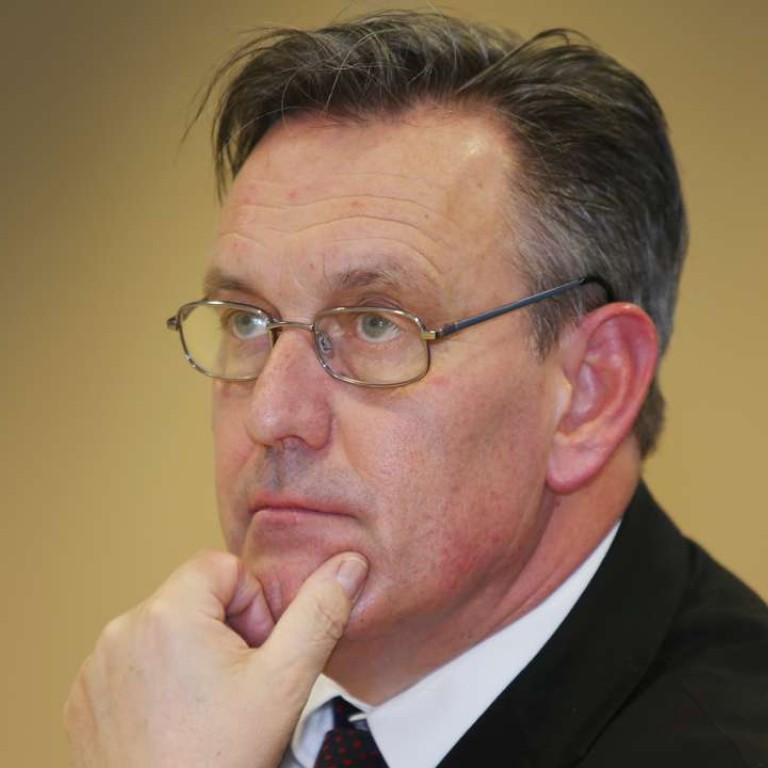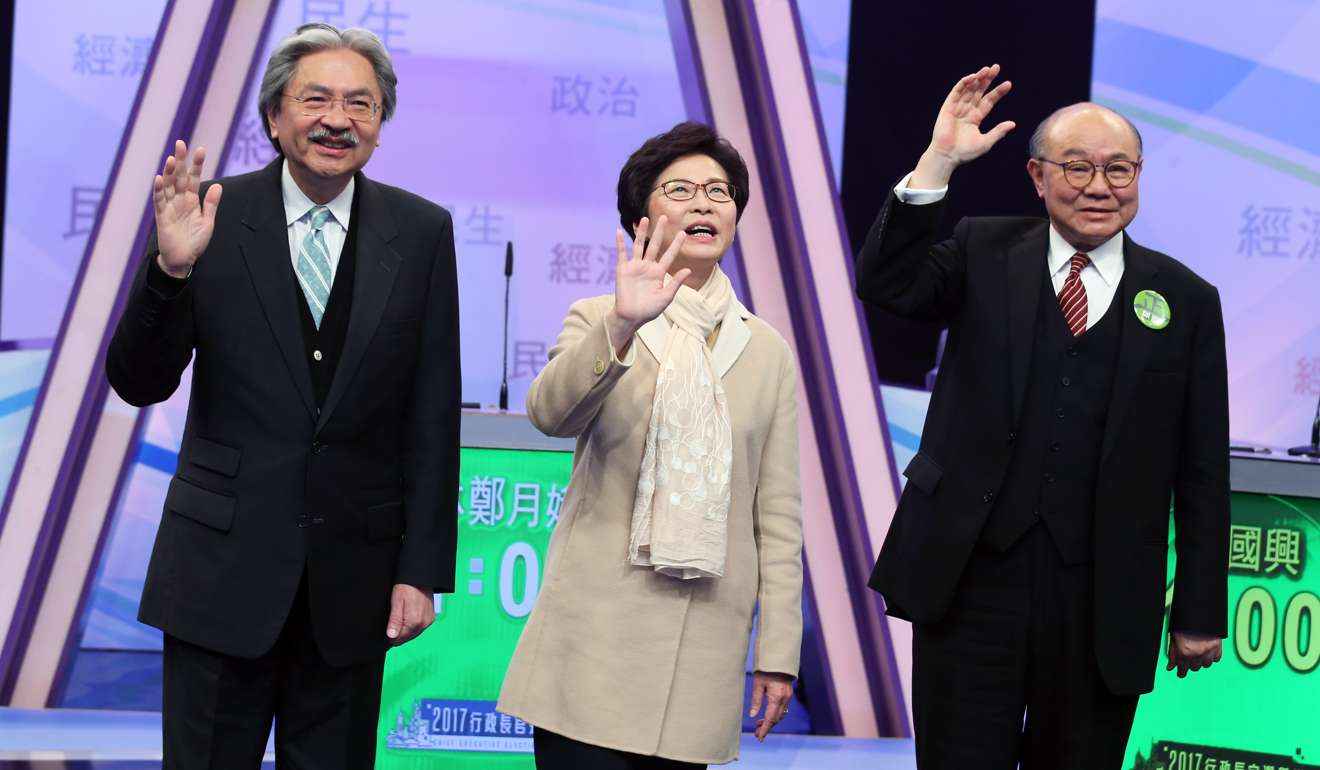
Next Hong Kong leader should reach out in substance to public, Britain’s top diplomat says
Andrew Heyn also says universal suffrage will be important in upholding the core principle governing China’s relations with the city
Britain’s top diplomat in Hong Kong has called on the city’s next leader to “reach out in substance” to the public amid worsening polarisation. He made the comments just 10 days before the election of a new chief executive in the former British colony.
In an interview with a small group of journalists, including the Post, British Consul General Andrew Heyn said universal suffrage would be important in upholding the core principle governing China’s relations with the city.
“A greater degree of universal suffrage within the framework of the Basic Law would help to support ‘one country, two systems’,” he said.
“Where you have seen successful presidents, chief executives [or] prime ministers, what they have done is to reach out not only in rhetoric, but also reach out in substance to people with different views,” Heyn said.
“Dialogue can’t cure everything, but without dialogue you really won’t make any progress whatsoever,” he said.
He said polarisation was as much a political development facing Hong Kong as in other countries, including the UK, US and the Netherlands.

But he said one needed to “decouple” the many reasons behind it – disdain of immigration, the hope to take back parliamentary power and anger towards Brussels.
The same approach, he said, was needed about what commentators called a deepening rift between mainland people and Hongkongers.
“The process of polarisation doesn’t revolve around one particular issue,” he said. “It involves a combination.”
Asked about media reports that Beijing’s liaison office in Hong Kong was interfering ahead of the March 26 chief executive election, Heyn said: “For me there are a number of ways to address issues like this. Sometimes you talk in public, sometimes you talk in private.
“I think when you are talking about election campaigns, the scope for diplomats to intervene – I think you have to respect the place you’re in,” he said.
Heyn’s predecessor, Caroline Wilson, was criticised by pan-democrats for not speaking up when Beijing imposed what they saw as a restrictive framework for universal suffrage, which was later voted down by the Legislative Council.
“It is one of the dilemmas that you face in the position,” Heyn conceded. “The fact is, honestly, we got criticised by both sides – people who say we have no right to intervene and shouldn’t say anything, and those who say we haven’t been saying enough. That’s an indication we are probably getting the balance right.”
“Very positive on both, actually,” he said when asked for his impressions. “There’s not much [more] I’m going to say.”

